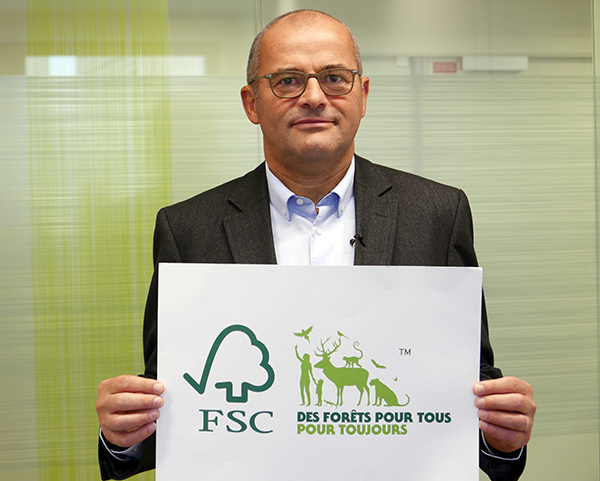BLOG: Gilles Lhermitte of Arjowiggins Graphic

World leaders descended on Paris for the historic COP 21 negotiations in December last year, putting a new spotlight on sustainability and raising difficult questions about the role we all play in improving environmental awareness and impact. Never has the public consciousness been so high, providing momentum for genuine change.
We simply can’t ignore the fact that many businesses, including ourselves – Arjowiggins Graphic – are highly dependent on scarce natural resources for day-to-day operations. Failing to consider the consequences of this could have major implications for their bottom line and business continuity. A circular economy is perfectly suited to the challenges we face today, acknowledging the scarcity of natural resources and rising energy prices, while recognising the need to create jobs.
As a company, we pioneered eco-responsible paper solutions, embracing circular principles and significantly reducing the impact of paper manufacture on the environment. In the paper industry, jobs are created through the collection and sorting of waste paper, which represents 23,000 jobs in France alone. As well as providing socio-economic benefit, recycled paper helps to conserve natural resources. Its production uses around two and a half times less energy and water compared with that of virgin fibre paper. The recycled paper production process emits up to 38% less carbon dioxide relative to a non-recycled paper.
In addition, we collect half of our waste paper from within a 300km radius, reducing emissions from transport.
All our factories are ISO 14001 certified for environmental management; outgoing water is treated in a waste-water treatment plant before being returned to the rivers, as clean or even more so than before; and production residues are reused in the manufacture of bricks with enhanced insulating properties or fertilisers that closes, in some cases, pathways for pollutants. There is always more to do from a production perspective, with the pace of technological change facilitating this. But we also need to engender a sense of responsibility amongst end-users, encouraging more and more people to adopt an eco-responsible approach to paper purchasing.
Sales of graphic recycled paper have increased by 13% since 2007, while the overall paper market decreased 8% overall. Although this is positive and bucking the trend in our industry, ultimately we want to increase the use of recycled papers, which accounts for just 12% of all graphic paper usage in Europe, yet its manufacture emits 38% less carbon dioxide than a non-recycled paper. We recognise the need to raise awareness of the global environment movement and the role recycled papers can play in reducing environmental impact.
As a starting point, we provided a demonstration of the benefits of the circular economy and the use of recycled paper at COP 21 last year. As the official paper sponsor, the deal was signed on our paper but we also supplied all of the 100% recycled paper used for COP 21 at the Bourget/Grand Palais site, as well as providing four million sheets of 100% recycled A4 paper to be used by negotiators and attendees.
The environmental savings for the four million sheets of 100% recycled paper used at COP 21 were: 4,086kg of carbon dioxide, 758,911 litres of water, 47,353kWh of energy and 27,640kg of landfill.
La Poste collected and sorted the waste paper, which was directly transported to Greenfield mill, just 100km away, to be deinked and transformed into a high-white paper pulp, which will be remade into o ice paper reams at Le Bourray mill.
Not only did that enable us to promote our papers to stakeholders, business, media and governments, it also allowed us to showcase the principles of the circular economy in action
Gilles Lhermitte, Brand Sustainability Director, Arjowiggins Graphic